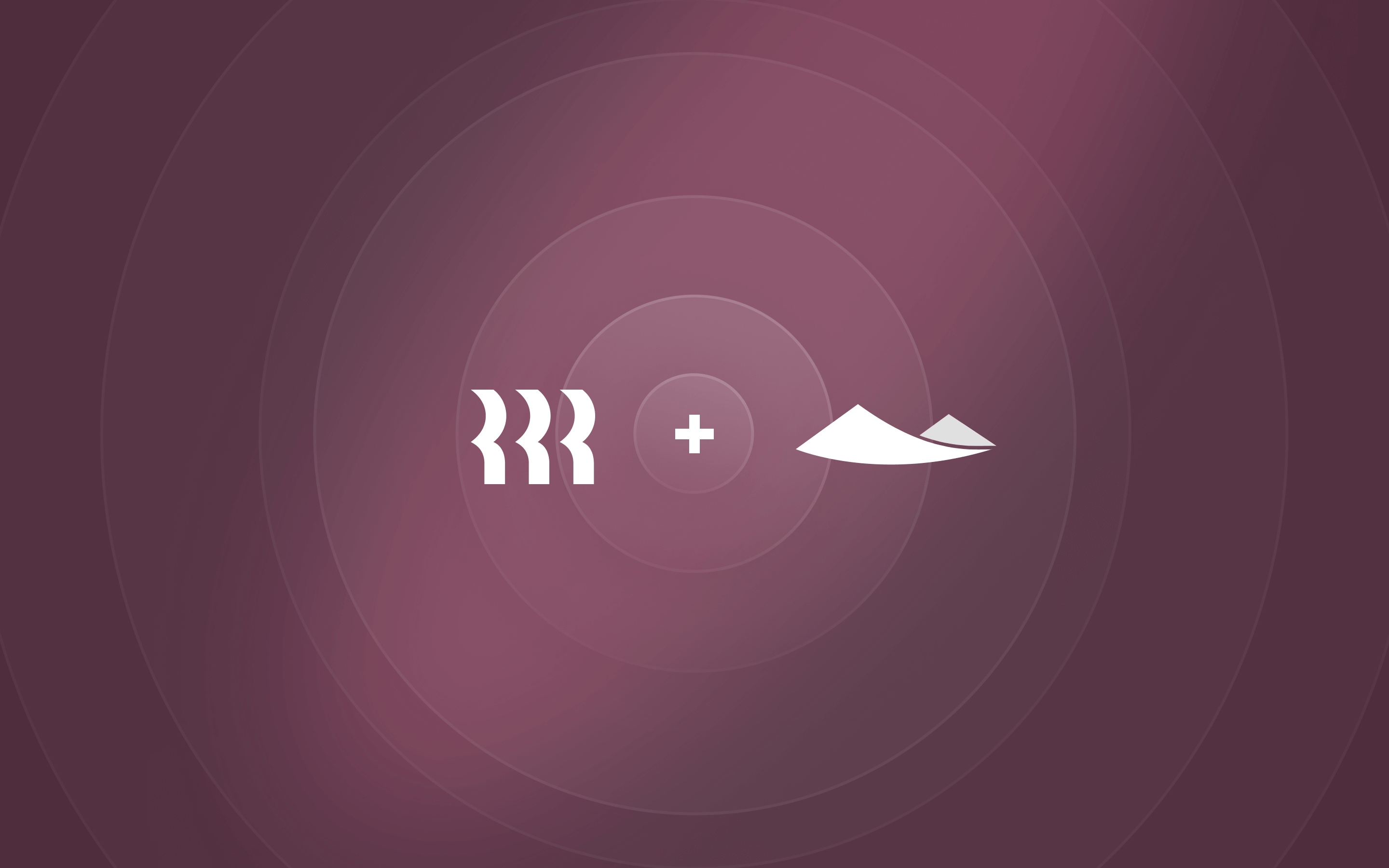Best 11 payroll software for accountants in 2025

As an accountant, you know that payroll is one of the most critical and complex aspects of your job. From ensuring compliance with changing regulations to managing employee benefits and deductions, there's a lot to keep track of. That's where payroll software comes in.
The right payroll tools can automate repetitive tasks, reduce errors, and free up your time for higher-value work. But with so many options on the market, how do you choose the best fit for your accounting needs?
In this guide, we'll break down the top payroll software for accountants in 2025. We'll cover key features to look for, benefits you can expect, and comparisons of the leading providers. Whether you're a solo practitioner or part of a large accounting firm, you'll come away with actionable insights to streamline your payroll process.
How accountants use payroll software: 4 key tasks
Payroll software has evolved from basic number-crunching to a comprehensive tool for managing the entire employee payment process. Here are some of the core tasks accountants perform using payroll solutions:
1. Set up payroll schedules for employees and contractors
One of the first steps in any payroll process is establishing pay schedules. Will employees be paid weekly, bi-weekly, semi-monthly or monthly? What about contractors or freelancers? Payroll software allows you to configure these details for each worker, ensuring timely and accurate payments. You can also easily make adjustments as needed, such as adding a new hire or switching someone from salary to hourly.
2. Manage tax compliance
Payroll tax laws are notoriously complex, with requirements varying by state. Keeping up with filing deadlines, calculating withholdings, and issuing W-2s and 1099s can be a full-time job in itself. The best payroll software takes much of this burden off your plate. It automatically applies the latest federal, state, and local tax rates to each paycheck. It reminds you of upcoming filing due dates. And it generates year-end forms for employees and contractors. That peace of mind is priceless.
3. Automate bookkeeping entries for payroll expenses and liabilities
Every payroll run impacts your books, from recording wages paid to tracking tax liabilities and benefit deductions. Manually entering this data into your accounting system is tedious and error-prone. With payroll software, those entries can be automated. Each pay run syncs seamlessly with your general ledger, posting expenses and liabilities to the right accounts. You can also easily export payroll data for deeper analysis in your preferred reporting tool.
4. Track employee benefits and deductions
Health insurance, retirement plans, HSA contributions—employee benefits are a key piece of total compensation. But administering those benefits through payroll can get complicated fast. Payroll software simplifies the process by automatically calculating and applying employee deductions each pay period. You can easily track employer contributions, catch enrollment changes, and keep tabs on eligibility and compliance.
3 benefits of payroll software for accountants
We've seen how payroll software supports key accounting tasks and responsibilities. But what's the bigger picture value? Here are three high-level benefits you can expect:
1. Enhanced compliance and accuracy
Payroll mistakes can be costly, from tax penalties to employee lawsuits. The best payroll solutions have compliance guardrails built in, from automated tax calculations to I-9 and W-4 verification. They're constantly updating to reflect the latest laws and regulations. And they're run through rigorous testing to ensure the numbers are right, every time. That means you can run payroll with confidence, knowing that compliance is virtually guaranteed.
2. Improved efficiency through automation
Time is money, and payroll can be a major time sink. For accountants juggling dozens of clients, that adds up fast. Payroll software automates the most repetitive and manual aspects of payroll processing. Think data entry, tax calculations, report generation, and more. Those efficiency gains free you up to focus on more strategic and revenue-driving activities, like financial planning and analysis. It's a win-win for you and your clients.
3. Better finance management
With the right software, you can easily track labor costs, forecast future expenses, and spot trends and anomalies. You can slice and dice data by department, location, or job type. And you can quickly generate custom payroll reports to answer ad hoc questions. In short, payroll software gives you the insights you need to be a true strategic partner. You can help your clients make smarter decisions about hiring, compensation, and more.
Best 11 payroll software for accountants in 2025
Looking for some of the best payroll platforms out there? Here’s our carefully curated list:
1. Rippling
Rippling offers a comprehensive, unified platform that combines HR, IT, and finance systems into one integrated solution. With a 100% error-free guarantee for tax calculations and filings, the system leverages its unified employee database to automatically sync payroll with benefits, time tracking, and expense management, eliminating manual work and reducing human error across all processes. Rippling is built in-house with all modules natively integrated, unlike competitors who often rely on third-party acquisitions.
Key features
- Automated tax calculations and filings across all 50 states
- Pay run comparison tool to track changes between payrolls
- Unlimited off-cycle payroll runs at no extra charge
- Custom pay types for bonuses, tips, and recurring payments
- Paperless W-2, W-4, and 1099 processing
- Multiple pay rates and retroactive pay support
- Garnishment management
- Global payroll capabilities for international teams
Pros
- Automated compliance monitoring and alerts
- Higher rated user experience
- Native integrations with QuickBooks, Xero, and NetSuite
- Seamless integration between all modules
- Granular permissions control for payroll approvals
- Mobile app for on-the-go payroll management
2. ADP RUN
ADP's small business solution offers payroll and HR functionality for companies with simpler needs.
Key features
- Federal, state, and local tax filing
- Mobile payroll services
- Employee self-service portal
Pros
- Wide network of tax compliance expertise
- Strong mobile app functionality
- Customizable payroll reports
3. QuickBooks Payroll
QuickBooks Payroll is Intuit's payroll solution that focuses on providing payroll processing for accountants and businesses already using QuickBooks for their needs.
Key features
- Same-day direct deposit
- Automated tax calculations
- Mobile payroll management
Pros
- Smooth QuickBooks integration
- Tax penalty protection
- Automated payroll options
4. Xero
Xero is a cloud-based accounting software with integrated payroll capabilities focused on small businesses. The platform emphasizes the connection between accounting and payroll functions to create a more streamlined workflow.
Key features
- Integrated accounting and payroll
- Multiple user access levels
- Automated tax calculations
Pros
- Strong accounting integration
- Employee self-service through mobile app
- Detailed reporting tools
5. Paylocity
Paylocity is a web-based payroll and HR platform serving businesses of all sizes.
Key features
- Customizable payroll workflows
- Integrated time and attendance
- Employee self-service portal
Pros
- Learning management system (LMS) for employee training
- Extensive reporting capabilities
- Automated tax management
6. Gusto
Gusto is a payroll platform that combines essential payroll functions with basic HR tools to provide a complete solution for smaller organizations.
Key features
- Automated tax filings
- Benefits administration
- Time tracking integration
Pros
- Built-in benefits management
- Transparent pricing structure
- Employee self-service
7. OnPay
OnPay provides payroll, HR and benefits capabilities that allows accountants to run their practice more efficiently.
Key features
- Unlimited payroll runs
- Multi-state payroll processing
- Automated tax filings
Pros
- Transparent pricing
- Free payroll setup assistance
- Integrated HR tools
8. Workday
Workday is an enterprise-level HCM platform providing payroll capabilities for larger organizations. The system is designed to handle complex payroll needs while integrating with broader HR and financial management functions.
Key features
- Global payroll processing
- Real-time analytics
- Continuous payroll processing
Pros
- Strong enterprise features
- Built-in compliance tools
- Advanced reporting capabilities
9. Patriot
Patriot is a payroll software that provides essential payroll functions while offering free setup assistance and US-based support.
Key features
- Free direct deposit
- Time-off accruals tracking
- Customizable deductions
Pros
- Free co-branding
- Discounted pricing
- Consolidated billing
10. Deel
Deel is a global payroll platform specializing in international workforce management and contractor payments.
Key features
- Global contractor payments
- Automated invoice generation
- Multi-currency support
Pros
- Strong international compliance
- Built-in payment options
- Automated tax documentation
11. Paychex
Paychex is another online payroll and HR software solution designed for businesses of all sizes.
Key features
- Benefits management
- Compliance tools
- HR services
Pros
- Flexible payment options
- Customizable dashboard
- Integrated time tracking
Best 3 payroll and accounting software for small business
Among these providers, here are the top three solutions specifically optimized for small business payroll and accounting needs:
1. Rippling
Rippling offers a comprehensive solution that combines payroll, HR, and IT management, making it particularly suitable for growing small businesses. The platform scales seamlessly as businesses expand, handling everything from basic payroll needs to complex multi-state operations. While it offers enterprise-level capabilities, its intuitive interface and automation features make it accessible for small business users.
Key features
- Automated tax filing and compliance
- Built-in time and attendance tracking
- Employee self-service portal
- Integration with 600+ business applications
- Customizable workflow automation
- Full benefits administration
2. Gusto
Gusto is a payroll platform designed for small businesses seeking simplicity in their payroll processes. The platform offers a straightforward approach to payroll with built-in time tracking and benefits administration, allowing businesses to manage everything easily.
Key features
- Unlimited payroll runs
- Integrated time tracking
- Benefits administration
- Employee self-service
3. Deel
Deel is a global payroll platform that makes it easy for small businesses to handle both domestic and international payroll. The platform provides US payroll processing in all 50 states while offering international payment capabilities.
Key features
- US and global payroll processing
- Benefits administration
- Compliance monitoring
- Multi-currency support
How to choose the best payroll software for accountants: 4 features
With so many payroll options out there, how do you narrow down the choices? Here are four key features to prioritize in your evaluation process:
1. Integrations with accounting software
If you're managing payroll for multiple clients, you need a system that plays nicely with your existing accounting tools. Look for payroll software with pre-built integrations with popular platforms like QuickBooks, Xero, and FreshBooks. The best integrations will automatically sync payroll data with your general ledger, eliminating manual entry and ensuring consistency. Bonus points for real-time sync that gives you up-to-the-minute financial visibility.
2. Tax filing and compliance support
Staying on top of payroll tax requirements is one of the biggest challenges for accountants. The best payroll software will have built-in safeguards to ensure compliance at the federal, state, and local levels. Look for features like automatic tax calculations, quarterly and annual filing deadlines, and year-end tax form generation for employees and contractors. Some providers will even handle tax payments and filings on your behalf, giving you even greater peace of mind.
3. Employee self-service options
Payroll isn't just about numbers, it's about people. And giving employees some self-service capabilities can drastically cut down on your administrative workload. At a minimum, employees should be able to view pay stubs and update personal information like bank account details. More advanced employee portals may also include features like time-off requests, document uploads, and benefits enrollment. By empowering employees to manage some of their own payroll tasks, you can focus on higher-level client work.
4. Scalability and customization
Your clients' payroll needs will evolve over time, and your software should be able to keep up. Look for a system that can accommodate different types of workers, pay schedules, and benefits packages. The ability to create custom pay types, deductions, and reports can also be invaluable for handling unique client scenarios. And if you work with larger clients, consider providers that offer advanced features like multi-state payroll, job costing, and labor distribution.
Rippling: Streamline payroll for your accountants
While there are many excellent payroll solutions on the market, Rippling stands out for its unique combination of power and flexibility. Its unified employee database and customizable workflows can save you hours of manual effort each month.
Rippling's platform automates everything from tax calculations and year-end forms to custom pay runs and approval flows, all while integrating seamlessly with your existing accounting and financial reporting tools. The system's unified approach means your payroll data automatically syncs with benefits, time tracking, and expense management, eliminating manual work and reducing the risk of errors.
As your practice grows, Rippling scales effortlessly to support larger clients with advanced payroll needs, while maintaining the same intuitive interface and automated workflows that make it efficient for smaller organizations. With industry-leading support response times, you can trust Rippling to handle your clients' most complex payroll requirements.
If you're ready to see how Rippling can streamline your payroll process, sign up for a free demo today. You'll get a personalized walk-through of the platform and see firsthand how it can support your accounting practice.
FAQs on the best payroll software for accountants
What are the best practices for payroll accountants?
Some key best practices include:
- Staying up-to-date on the latest tax laws and regulations
- Establishing clear processes and approval workflows for payroll tasks
- Reconciling payroll data with bank statements and financial reports regularly
- Keeping detailed records and documentation for auditing purposes
- Communicating proactively with clients about payroll deadlines and requirements
Using payroll software that automates repetitive tasks and ensures compliance can make it much easier to implement these best practices consistently.
Is payroll software suitable for accounting firms managing multiple clients?
Absolutely. In fact, payroll software is especially valuable for accountants juggling multiple client accounts. The right payroll software can help you efficiently manage payroll for dozens or even hundreds of clients, without sacrificing accuracy or compliance.
Can payroll software handle international payroll for accountants with global clients?
It depends on the specific software, but some payroll solutions do offer international capabilities. Rippling, for example, supports payroll processing in over 185 countries. If you have clients with global teams, look for features like multi-currency support and exchange rate tracking, compliance with local tax laws and regulations, integrations with global payment providers and banks, localized employee self-service portals and support, and consolidated reporting across international entities. Keep in mind that international payroll can be very complex, so it's important to thoroughly vet any software provider's global capabilities before committing.
Why should accountants choose Rippling over other payroll software?
Rippling offers a unique combination of automation, customization, and integration that sets it apart from other payroll solutions. Some of the key advantages include:
- A unified database that syncs employee data across payroll, HR, IT
- Highly customizable approval flows and pay run configurations
- Robust reporting and analytics to support strategic advising
- Seamless integration with accounting, time tracking, and expense management tools
- Global payroll capabilities to support clients with international teams, and
- Dedicated support from payroll experts and accounting professionals.
But ultimately, the best way to see if Rippling is right for your practice is to try it out yourself. Sign up for a free demo today and experience the difference firsthand.
This blog is based on information available to Rippling as of February 28, 2025.
Disclaimer: Rippling and its affiliates do not provide tax, accounting, or legal advice. This material has been prepared for informational purposes only, and is not intended to provide or be relied on for tax, accounting, or legal advice. You should consult your own tax, accounting, and legal advisors before engaging in any related activities or transactions.











